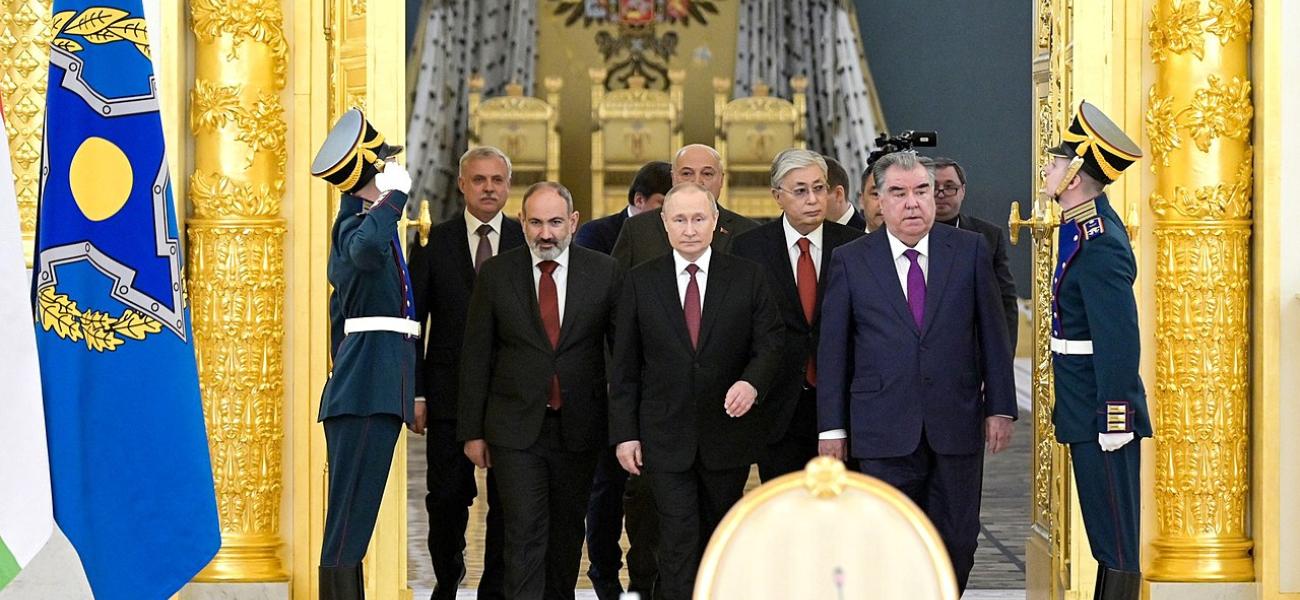
The End of the Post-Soviet Order
October 13, 2022
Marlene Laruelle
This is a summary of an article originally published by Foreign Affairs with the subheading, "How Putin’s War Has Hurt Russia in Central Asia and the Caucasus."
The author, director and research professor at the Institute for European, Russian and Eurasian Studies at George Washington University, writes:
- “Russian President Vladimir Putin sees Ukraine as part of Russia’s rightful sphere of influence, but because of his invasion, that sphere of influence is contracting. Russia is losing ground in regions where it has long held sway. Nowhere is this more apparent than among the countries of the South Caucasus and Central Asia.”
- “Russia’s weakened status in Central Asia and the Caucasus has benefited other states.”
- “As the Russian economy declines, China will become an even more prominent provider of major infrastructure investments in the region.”
- “Turkey has won itself a new status as a potential peace broker in the Caucasus and has been making skillful use of its median position between Moscow and Kyiv to promote itself across the region more broadly.”
- “In theory, the EU may earn new legitimacy if it can find a way to reengage Armenia, Azerbaijan, and Georgia and craft new forms of partnership for those three countries destined to remain outside the EU, but much depends on Europe’s own resilience and its ability to sustain a confrontational posture toward Russia.”
- “But Western countries would be wise not to celebrate Russia’s unwilling abdication of its role as security guarantor for the countries to its south.”
- “Although the waning of Russian influence may open new opportunities for these countries to reshape their own destinies, it may also create waves of regional tensions, as evident in Azerbaijan’s proactive efforts to complete its reconquest of Karabakh.”
- “Central Asian and South Caucasian countries appear to have suffered a good deal of collateral damage from the decline of the Russian economy and the impact of Western sanctions targeting Russia.”
- “Albeit diminished, Russia remains a significant regional power. Military, economic and people-to-people links between Russia and the countries of the region will persist and not suddenly disappear. Russian dominance may be crumbling, but no clear order has yet formed to take its place.”
Read the full article at Foreign Affairs.
Author
Marlene Laruelle
Marlene Laruelle is director and research professor at the Institute for European, Russian and Eurasian Studies at George Washington University.
The opinions expressed herein are solely those of the author. Photo by Kremlin.ru shared under a Creative Commons license.
Click to Subscribe
Russia Matters offers weekly news and analysis digests, event announcements and media advisories.
Choose and sign up here!
Recent Analysis
CIA Director Burns on Ukraine: ‘We’re Running Out of Time to Help Them’
April 25, 2024
George W. Bush Presidential Center
Personnel Stagnation to Splinter Putin Elite With Battle of Lost Generations
April 19, 2024
Andrey Pertsev
Recent Posts
Mitter, Wishnick: Alignment, Not Alliance for Russia-China Relationship
April 18, 2024
Conor Cunningham
Polls Show Record Low Number of Russians Willing to Permanently Move Abroad
April 12, 2024
Simon Saradzhyan
Fiona Hill Delivers Insights on Russia's Perennial Role in Global Geopolitics
March 21, 2024
Conor Cunningham
How Much Would 0.25% of Ramstein Group Members’ GDP Really Raise for Ukraine?
March 07, 2024
Conor Cunningham and RM Staff

